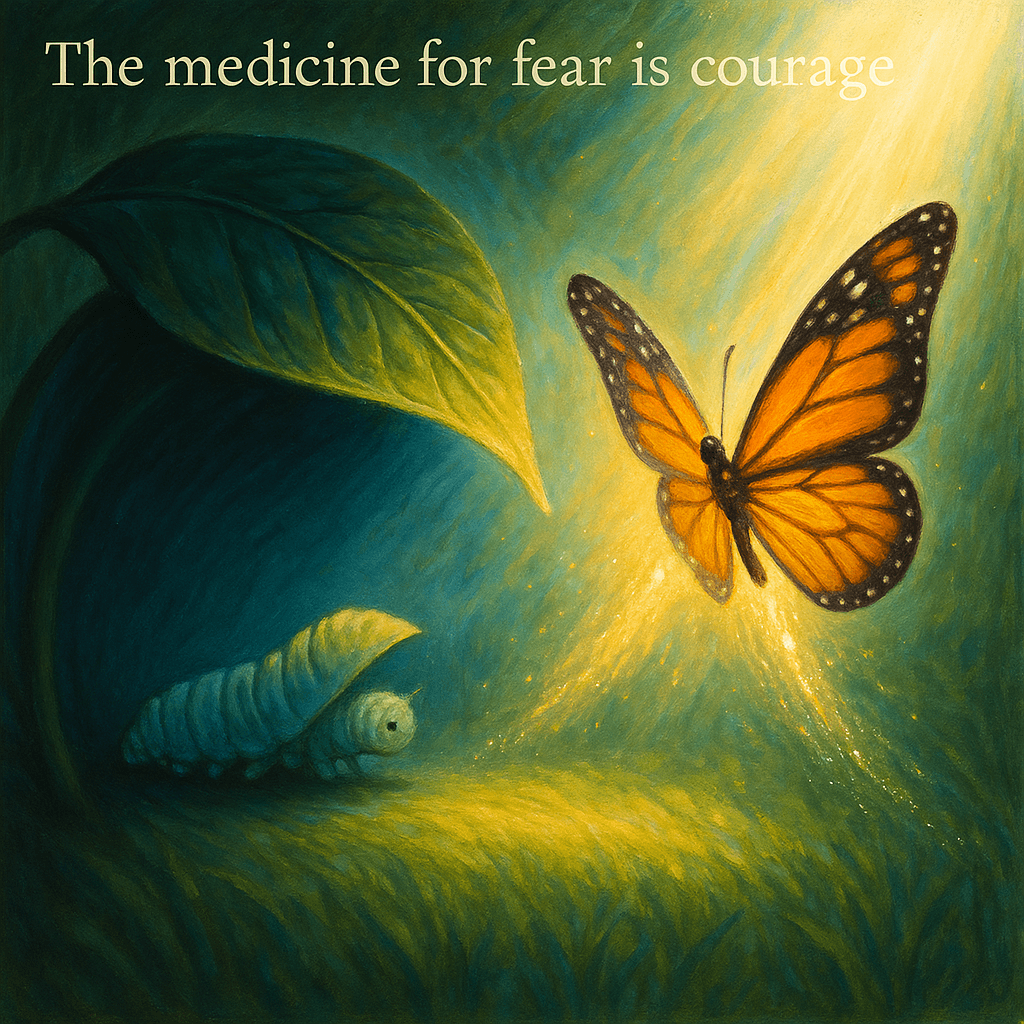Confronting Fear: Courage as the True Medicine
Created at: August 7, 2025

The medicine for fear is courage. — David Agus
Defining Fear and Its Effects
Fear is a fundamental human emotion that often arises in response to perceived threats, whether real or imagined. While fear can serve as a protective mechanism by alerting us to danger, it can also become debilitating, limiting our actions and growth. From stage fright to the anxiety of change, fear manifests in countless ways that impact both personal and collective progress.
Courage as the Antidote
Transitioning from this understanding, David Agus’ statement positions courage as the medicine for fear. Courage does not imply the absence of fear but rather the willingness to act in spite of it. This transformative quality allows individuals to move beyond paralysis and take constructive steps, as famously illustrated by Nelson Mandela, who admitted, 'I learned that courage was not the absence of fear, but the triumph over it.'
Historical and Literary Perspectives
Going further, literature and history are replete with examples where courage triumphs over fear. In Homer’s *Iliad*, warriors steel themselves before battle despite looming threats. Similarly, during the civil rights movement, figures like Rosa Parks displayed immense bravery, refusing to let fear dictate their actions. These examples reinforce Agus’ perspective by highlighting the enduring value of courage in transformative moments.
The Science Behind Courage and Fear
Moreover, psychology supports the idea that courage can be cultivated as an antidote to fear. Exposure therapy, for instance, gradually introduces people to their fears in controlled settings, allowing them to build confidence and reduce avoidance behaviors. Studies show that repeated acts of bravery, even small ones, can rewire the brain’s response to threatening stimuli, underscoring the medicinal quality of courage (American Psychological Association, 2012).
Embracing Courage in Everyday Life
Ultimately, applying courage in daily life need not involve grand gestures. Everyday acts—voicing an unpopular opinion, starting a new endeavor, or admitting vulnerability—require bravery. By consistently choosing courage, we empower ourselves to grow, adapt, and overcome obstacles. Thus, as Agus suggests, courage remains the most potent remedy we possess against the paralyzing grip of fear.